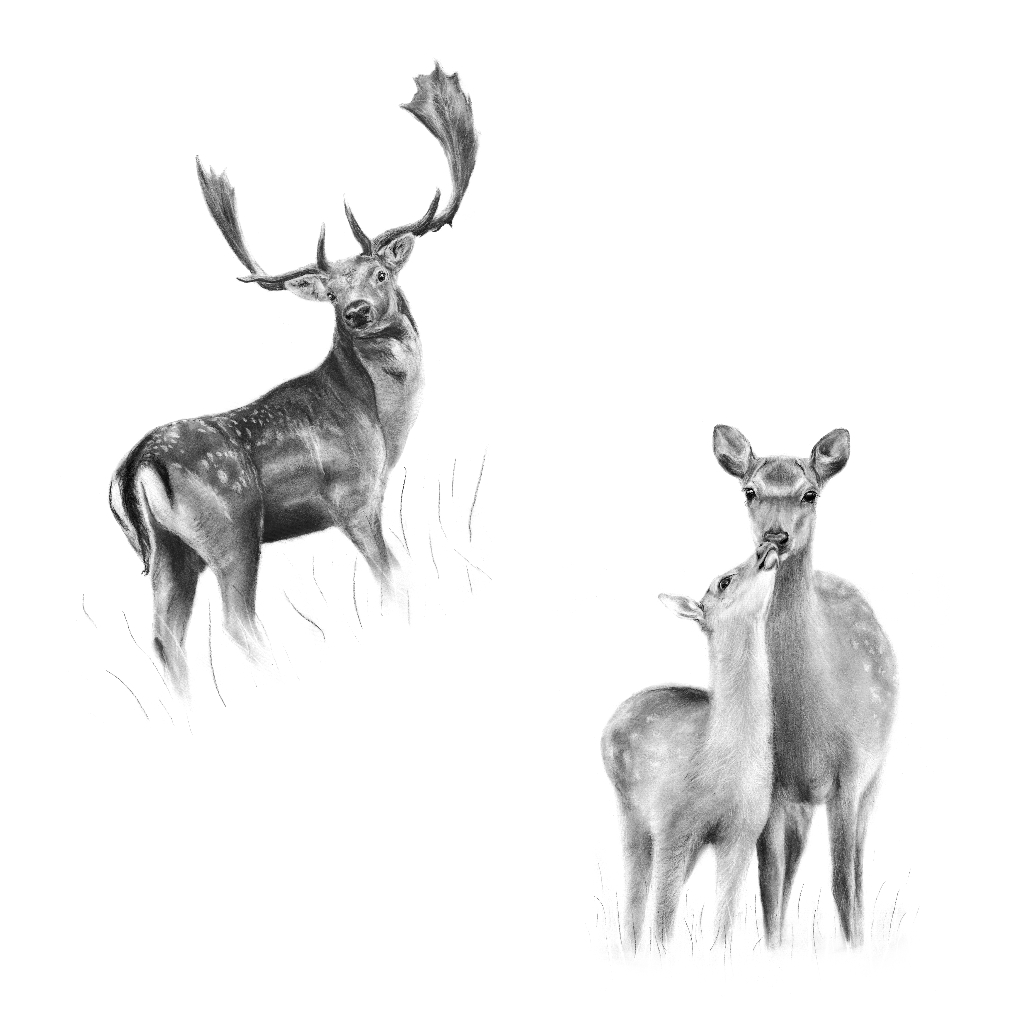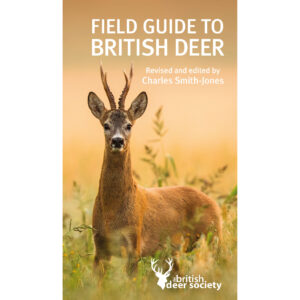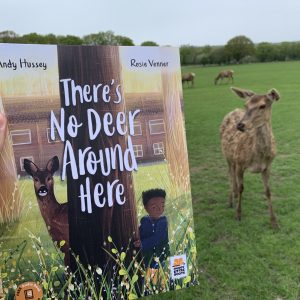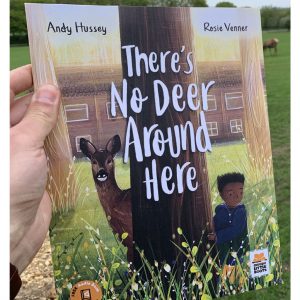Are Deer the Villains When Tackling Climate Change?
Share article:
Article by:
David McAuley , CEO, British Deer Society
Are Deer the Villains When Tackling Climate Change?
If you read some of the recent press and media articles about deer, you will probably spot a reoccurring theme that paints deer in the UK as a huge barrier to efforts to combat climate change. Readers are regularly exposed to emotive statements about explosive deer population numbers, backed up by sweeping statements that all too often implicate deer as the villains.
Is this fair or even true?
Deer Numbers in the UK
Deer are extremely difficult to count accurately, and while technology is helping to improve our understanding the true size and scale of the UK deer population as a whole remains unknown. This has been openly recognised by policy makers across the UK.
We do know that there are reports of increases in some areas but at the same time we also hear reports of decreases as well. So, the picture is certainly mixed and sweeping figures about the number of deer in the UK should not be taken at face value. Furthermore, commentators can sometimes become fixated on numbers rather than densities and may overlook the importance of the ability of a given habitat to support the deer and other wildlife that live within it.
Lessons learned in wildlife management and conservation in the UK and across the world tell us that the most credible approach to developing any effective wildlife management strategy, especially at the national scale, demands a solid evidence base.
Deer Damage
Deer do not intentionally cause damage. They are just doing what deer do, eating, moving across the landscape and each year producing young deer. The issue is the number of deer versus the number the landscape can sustainably support for things to remain in balance.
There is no magic number as different habitats can support different population sizes. Add to this the fact that the UK has six different species of deer, all with different ecologies and population dynamics, and which interact differently with their environment, and the picture becomes less clear.
Finding a Balance
Due to centuries of increasing human populations, which have had both direct and indirect effects on our natural fauna, linked to a changing UK landscape, we have found ourselves in a position where species like deer no longer have natural predators and must be managed in order to keep numbers in balance with the habitats they occupy.
Some of the recent concerns about deer numbers can be traced at least in part to the Covid lockdowns when deer management was restricted or prevented completely. This, coupled with the drop in the value of venison in recent years, has resulted in a situation where it might not be financially viable to manage certain species. Often these are the species that are in most need of attention.
There is no doubt that action is needed to bring deer populations back to sustainable numbers, but caution must be taken to ensure that considered and practical deer management plans are in place and adhered to
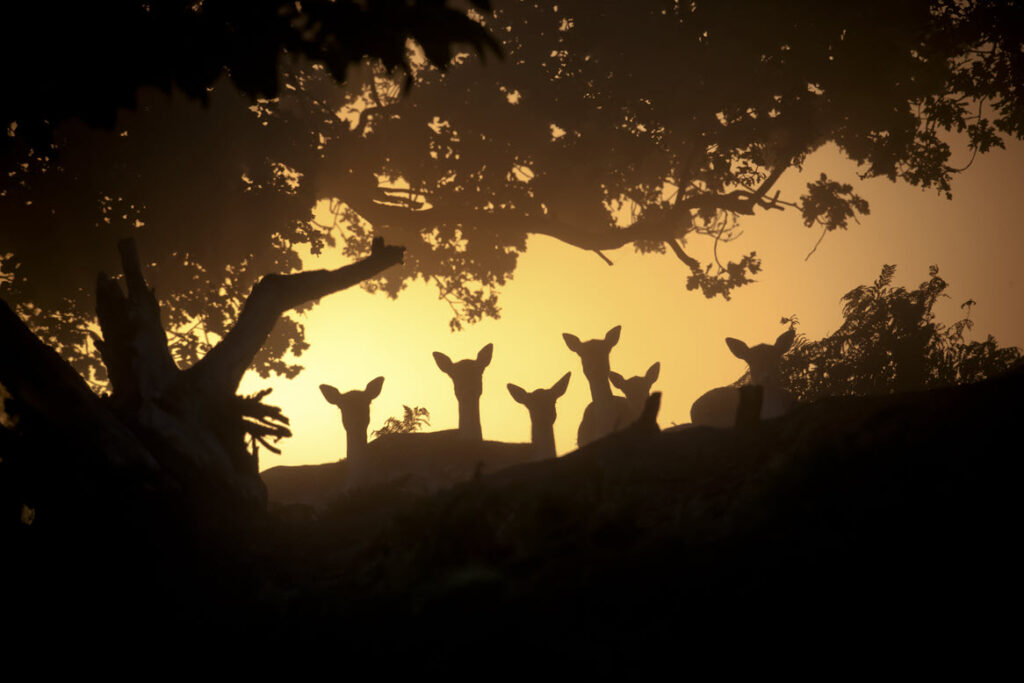
Do the Answers lie in Policy and Legislative Change?
Policy and legislation have the potential to provide clear support for positive changes in deer management and the BDS has a team of specialists who are willing to assist policy makers in this area. However, the BDS will insist that changes consider deer welfare as a whole, are based on sound evidence, and are designed to promote balanced sustainable deer populations.
There is relevant scientific evidence showing that heavier pressure on males can lead to an enormous distortion in the adult sex-ratio, with populations containing few adult males compared to numbers of adult females. An example of this is notable among the fallow deer in the south of England. Here, males are preferentially targeted rather than females. As a result, female numbers are increasing rapidly, while the actual proportion of mature males in many fallow populations is alarmingly low [e.g., Thirgood 19957].
The Deer Initiative Limited clearly noted in 2009 in relation to deer management that if you inadvertently reduce overall male numbers more than those of females within a population, you can end up causing the total population of deer to increase.
While legal changes do not in themselves force deer managers to focus only on shooting male deer, they do open the door to a level of freedom that is open to abuse.
The British Deer Society is fundamentally opposed to the complete removal of close seasons for any deer. Such an act does not address the key barriers to managing deer numbers sustainably and could be used to further diminish the status of deer while undermining efforts to ensure that deer are treated humanely and with respect.
It is worth noting that, although muntjac have no closed season, this has done little to prevent both their spread and population increase.
Recent Developments in Scotland
The British Deer Society welcomes the decision by the Rural Affairs & Islands Committee of the Scottish Parliament to put the decision to abolish close seasons for male deer to a vote by the full Scottish Parliament. We had significant concerns about the process that was followed by the Scottish Government to implement these changes. We are confident that if due process had been followed, it would not have been necessary for the Committee to refer this back to the Parliament.
In the meantime, we are concerned that there may now be confusion as to what the legal position for male deer in Scotland will be on 21st October. We would urge all deer managers in Scotland to exercise caution and follow the existing close seasons and out-of-season authorisation processes until the outcome of a Scottish Parliamentary decision is known.
To find out more about the charity’s position on the proposed changes please read our consultation response which can be found here: https://bds.org.uk/2023/06/15/consultation-on-secondary-legislation-for-deer-in-scotland/
Solutions For A Sustainable Future
Climate change is an issue for us all and deer management has a part to play in the challenges ahead. We would urge all parties across the UK to work together to continue with and further develop a deer management strategy that is not driven by politics, but rather is evidence-based, and incentivised in the right way using:
- technology to survey deer populations to better understand their size and constitution.
- habitat impact assessments alongside regular deer monitoring to support creating adaptive deer management plans.
- support and incentives for deer managers and stalkers.
- initiatives and infrastructure to supply venison resulting from deer management to the public. Venison is a fantastic, ethical, and sustainable natural meat that should be more accessible and widely eaten across the UK.
- support to keep this positive cycle in motion including access to expert training in all aspects of deer management.
Furthermore, we must stop treating deer as the villains. They are unwitting players in a much wider scenario, and we owe it to them to ensure that their welfare is kept firmly at the centre of all actions taken to reduce their impacts.
PLEASE HELP US TO SPEAK UP FOR DEER
If you believe deer deserve better and should be managed fairly and humanely then get involved by:






